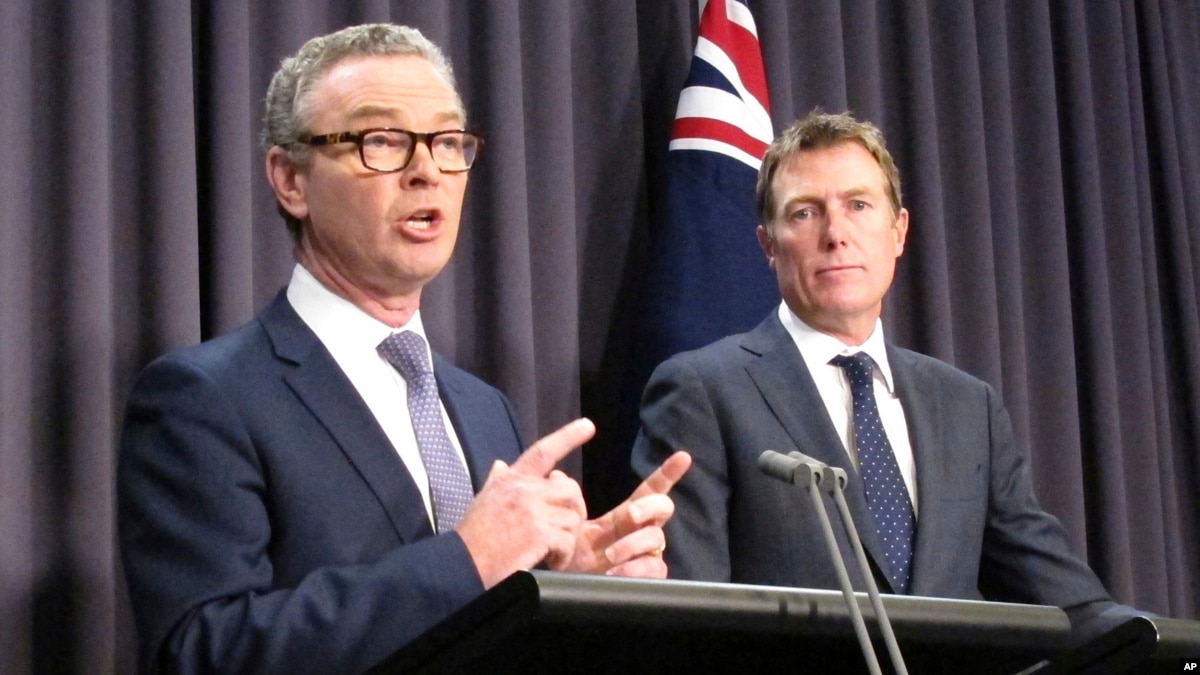
Australia's Parliament passed sweeping national security legislation on Thursday that bans covert foreign interference in domestic politics, makes industrial espionage for a foreign power a crime and offends the nation's most important trading partner, China.
The two bills covering foreign interference, espionage and influence transparency have been criticized as criminalizing dissent. The Senate made them law with the support of the center-left Labor Party opposition on the last day of Parliament before mid-August.
The conservative government says the legislation, first proposed in December, is the major cause of a rift in diplomatic relations with China. But the government maintains it is not aimed at any particular country.
Foreign interference in the latest U.S. and French presidential elections plus the Brexit referendum in the United Kingdom have been cited as justifications for the reforms.
Individuals lobbying for foreign governments will have to be listed on a public register in a step toward making foreign influence on Australian politics more transparent.
Attorney General Christian Porter said Australia's national security has been substantially enhanced by the new protections against agents who could undermine Australia's democratic institutions and processes.
“We have heard time and time again from our most senior national security leaders that we live in a time of unprecedented foreign intelligence activity against Australia with more foreign agents, from more foreign powers, using more tradecraft to engage in espionage and foreign interference than at any time since the Cold War,” Porter said in a statement.
“This sends a strong message to those who would seek to undermine our way of life that Australia is acutely aware of activities against our national security and will continue to take the steps necessary to thwart their activities,” he added.
The law includes 38 new crimes and broadens the definitions of existing crimes. The new crimes include stealing trade secrets on behalf of foreign government, which is punishable by 15 years in prison.
A person who engages in covert or deceptive activity to influence political or governmental process, such as organizing a rally, without revealing he or she was operating on behalf of a foreign government could be guilty of a range of foreign interference crimes with maximum penalties ranging from 10 to 20 years in prison.
Both bills were substantially amended in recent weeks on the advice of a parliamentary committee that scrutinized them, narrowing their focus and reach and increasing the number of organizations that are exempt.
Charities that accept foreign funding but not foreign government direction are exempt, the Catholic Church will not have to register as an agent of the Vatican, and the media have legal protections in reporting leaked national security information.
The minor Greens party opposed the bills, arguing they curtail press freedom, the right to protest and the work of non-government organizations.
“This is a sad day for Australia. We've taken giant steps today down a dangerous path for our country,” Greens Sen. Nick McKim told Parliament.
Australian media have reported that the bills were the result of a classified government report commissioned by Prime Minister Malcolm Turnbull in 2016 that found that the Chinese Communist Party had tried to influence Australian policy, compromise political parties and gain access to all levels of government for a decade. The government won't comment on the media reports.
China protested Turnbull's announcement of the foreign interference ban.
The Chinese foreign ministry said in December that Turnbull's remarks were prejudiced against China and had poisoned the atmosphere of China-Australia relations.
A related bill announced in December to ban foreign political donations, of which China has been the largest source, is still being drafted. Labor has voluntarily refused to accept foreign donations.

No comments:
Post a Comment